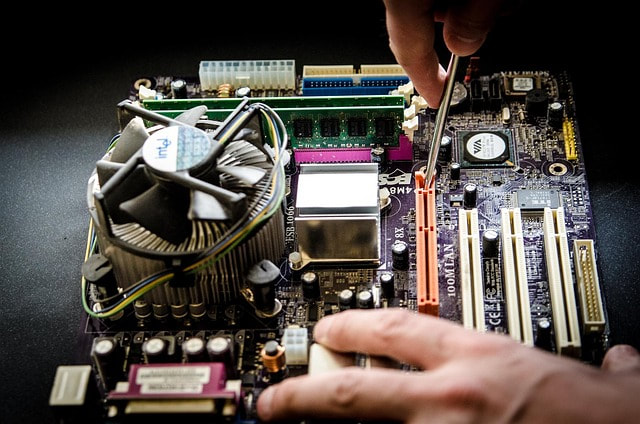|
By Rick Rouse
Rick's Daily Tech Tips The long chain of data breaches that have been in the news of late should be a huge wake-up call for everyone who is concerned with their online security. It seems that every day or two we hear that another online service has been hacked and their customers’ personal information stolen. Short of simply closing all of your online accounts, there’s really nothing you can do to prevent the services you use from getting hacked since the security of their servers and software is entirely out of your control. There are a couple of things you can do however to limit a successful hacking attack’s effects on your own life: 1 – Limit the amount of personal and financial information you provide to any online service to the bare minimum required in order to use the service. And the reason is simple: The less information you allow a company to store on their server, the less information a hacker will be able to steal if he/she breaks in to it. 2 – Enable Two-Factor Authentication on every online account that supports it. While it isn’t perfect, Two-Factor Authentication is one of the most effective tools you can use to keep hackers and scammers from illegally logging into your online accounts, even if they somehow manage to get your passwords. In regards to number one above, once hackers have possession of your personal and financial information they can do pretty much anything they want to do with it. And if that happens, you’ll likely be left to try to clean up the mess they create for you all on your own. But there’s better news in regards to number two… Enabling Two-Factor Authentication on any online account will add another bar that a hacker must hurdle in order to gain access to that account. What’s more, that extra bar is extremely high since it’s highly unlikely that the hacker will have physical access to your mobile phone. After you enable Two-Factor Authentication on an account the service will send an authentication code to your mobile phone every time someone tries to log in to the account. Anyone attempting to log into that account (yes, even you) will have to enter the code from that text message or app before he/she will be logged into the account, even if they know your password. In a nutshell, in addition to needing something you know (your password), a hacker would also need to have physical access to something you own (your mobile phone) before being granted access to your account. Since any potential hacker is very unlikely to have access to your phone, enabling Two-Factor Authentication is an extremely secure method of locking down your online accounts. I strongly recommend that you enable Two-Factor Authentication on every one of your online accounts right away. You can find instructions for enabling Two-Factor Authentication on most any online account simply by searching the web for the term enable two-factor authentication on [name of service]. For example, if you were seeking instructions for enabling it on Facebook you would search for enable two-factor authentication on facebook. Bottom line: While you can’t control the security of a company’s servers, you can make it difficult for a hacker to use your stolen login credentials to log into your accounts simply by enabling Two-Factor Authentication on every account that supports it. Bonus tip: This post explains how to choose a password that’s easy to remember, yet extremely hard to break.
0 Comments
 Image by Michal Jarmoluk from Pixabay By BD Bondy
Since I retired from computer repair, I get asked who they can go to for computer repair. I have been recommending Julian Shapiro for PC work and Eric Roithmayr for Apple work. I know sometimes they are unavailable so I just heard about a company in Taos that a friend recommended highly. I know Taos isn’t that close, but not many places are. Electric Sheep Computers was recommended. I have only spoken to them, a man called Jack answered the phone, and my questions. They sound quite competent. I asked general questions, so, they work on both PCs and Macs. They also do internet work, if you have a need to expand your internet at home, they can help. They are located in Taos, so you would need to take your computer there. They do some traveling in the area, particularly if you wanted to set up a WiFi mesh system or the like, but it depends on the job and the distance. Contact info is as follows: Julian Shapiro, [email protected], 631-680-2404 Eric Roithmayr, [email protected], 310-467-0477 Electric Sheep Computers, electricsheepcomputers.com, 575-737-8855 By Rick Rouse
Rick's Daily Tech Tips. Note from Carol. Any links in Messenger should be suspect even when seemingly sent from Facebook OR from a trusted friend. Also I would include in this messages that your page has been marked for deletion. I get about three or four of those a week. Reject message requests: In the Messenger app, go to Privacy & safety, then Message delivery, and reject requests from people you don't know By now you surely know there are multiple scams making the rounds on social media at any given time. That's just a sad fact of life in this Internet era. There's a very dangerous scam that's been popping up on Facebook at times for years, and unfortunately it's making the rounds again right now. This scam works something like this: You receive a text message or email stating that your Facebook account has been "reported for abuse". You're then told that you must provide a ton of personal information and "update your credit card information" in order to prove that your account is legit and you are who you claim to be. If you receive this message, ignore it. It's a scam, and a very dangerous one at that. If you fall for the scam and provide the requested info, the scammer will end up with your credit card information and possibly even enough of your personal info to steal your identity and open new credit accounts in your name. At the very least they will be able to sign into your Facebook account and assume control of it. Luckily, this is a very easy scam to avoid... All you have to do is make sure you never respond to any private messages or emails asking you to verify your personal information in the manner described. Again, these types of messages and emails are ALWAYS fake. If you receive one of them you can easily verify that it's a fake simply by signing into your Facebook account at the official Facebook website (Facebook.com) or by signing in via the Facebook app. If there's truly an issue with your account you'll be notified at that time. Important: DO NOT click any links in the text message or email. Only sign in at the official Facebook website or via the Facebook mobile app. Note: Facebook does ask certain users to provide proof of identity on occasion, but they only display that request when the user attempts to log in to the system, never in a private message or email. If Facebook ever does feel the need to require you to verify your identity, they will direct you to visit this page on the official Facebook website for instructions on how to submit your ID/documentation for review. Bottom line: It's important to always remain vigilant about protecting yourself from Facebook scams, and the scam described above is one of the most dangerous scams being spread at the current time. By BD Bondy
Image: Carol Bondy I frequently hear from someone that they don’t use their computer anymore, but instead, they use their iPad. I understand this completely, as I use my desktop so infrequently, but I use my phone all the time. I’ve gotten quite comfortable using my phone for nearly everything, shopping, reading the news, entertainment. That said, I still prefer my desktop for writing. I Googled the question of laptop or tablet and found some interesting articles. My experience is that many folks are giving up their computers for tablets. What came up from my search wasn’t quite like that. It makes me wonder if many of the articles are purposely biased towards computer manufacturers. Let's look at some things. Tablets are smaller, lighter, and extremely easy to carry with you wherever you go. They run a long time on battery, they come with every imaginable app you could want, and as the waiter said to Mr. Creosote, “it is wafer thin”. An argument can be made that they are less powerful, but my smartphone has as good of a processor as my desktop. Tablets have less storage. While this is probably true, how much storage is your computer actually using? It may have a terrabyte of storage, but you are probably using a tenth of that. Besides, cloud storage solves that issue, along with the convenience of having a very secure place for storage that is backed up by a giant corporation. Tablets have small screens and no keyboards. This is only true until you send your display to your TV, or other, larger screen, and there are plenty of Bluetooth keyboards and mice that you can use. There are plenty of reasons to prefer a tablet to a computer. I still prefer to write on my desktop, at a desk, sitting upright in a chair. So I will keep my computer. However, you may feel differently. I am including a couple of links for you to read. On is from a college student that switched to a tablet. The other is from HP. I don’t agree with HP for several of it’s points, but you may. From HP College kid says There are some obvious reasons why you may require a desktop, software, and the means to run it. If you are a serious photographer, you can do some amazing things on a tablet, but you need a powerful computer to run some of the major photo, and movie editing programs. Businesses need computers to run their business software. Stuff like that. On the other hand, you can use your tablet to remote connect to those computers... |
Tech TipsThere's a lot of fake information out there. Please be scrupulous about what you share on Facebook and other platforms. Here are some trusted sources. Please don't rely on social media for your information.
Abiquiu Computer Recycling
Abiquiu Computers gives away available computers for FREE. We recover used pc’s and upgrade them, repair them, refurbish them so they may have another life with someone else. CategoriesArchives
October 2025
|




 RSS Feed
RSS Feed